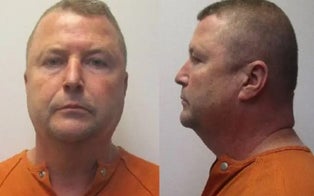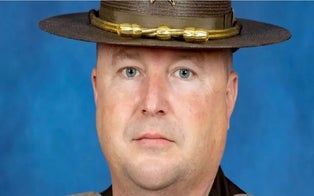After spending three weeks in a New York City hospital, Ebola patient Dr. Craig Spencer has been released, Ebola free. INSIDE EDITION explains.
Wild cheers greeted the doctor who contracted Ebola as he was released from the hospital on Tuesday.
Dr. Craig Spencer spent three weeks in an isolation unit in New York City’s Bellevue Hospital. He contracted the disease while treating Ebola patients in West Africa.
He said in a press conference, “Today I am healthy and no longer infectious."
There were hugs from the doctor who led the team that treated him and from New York Mayor Bill de Blasio. And a big embrace from the mayor's wife, Chirlane. All those hugs for the cameras were designed to send a message to the public—that the doctor is Ebola free and does not pose a risk to anyone.
Dr. Laura Evans told INSIDE EDITION, "The care team really feels very close to him. So, hugs are mostly for that. But also to dispel some of those rumors about Ebola."
Watch INSIDE EDITON's Interview with Evans
A bouquet of balloons greeted Dr. Spencer when he returned home to his Manhattan apartment. His fiancée, Morgan Dixon, remains in quarantine in their fifth floor apartment until Thursday.
But his release also comes with a warning—no sex until next February!
According to CDC guidelines for Ebola survivors, abstinence from sex is recommended for at least three months.
Dr. Spencer is being hailed as a hero today, but that was not the case three weeks ago when he ate out, rode crowded subway trains and went bowling until his first symptoms appeared.
Meanwhile, 60 Minutes correspondent Lara Logan is in self-imposed quarantine after reporting on the Ebola crisis from Liberia. She and four other CBS employees have been working from a hotel in South Africa since leaving Liberia.
She said, “We wanted to try as much as possible to minimize our exposure to anybody."
According to the World Health Organization, there have been more than 13,000 confirmed cases of Ebola. 4,960 people have died from the disease.






